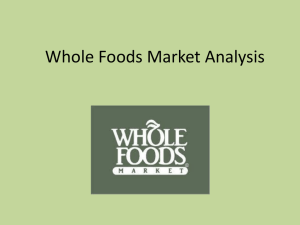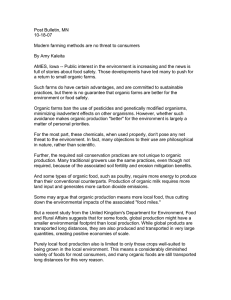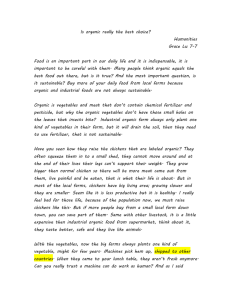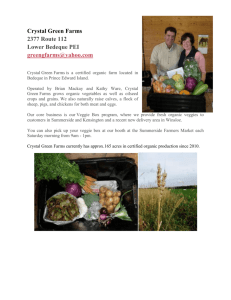Charlotte Observer, NC 10-15-07
advertisement
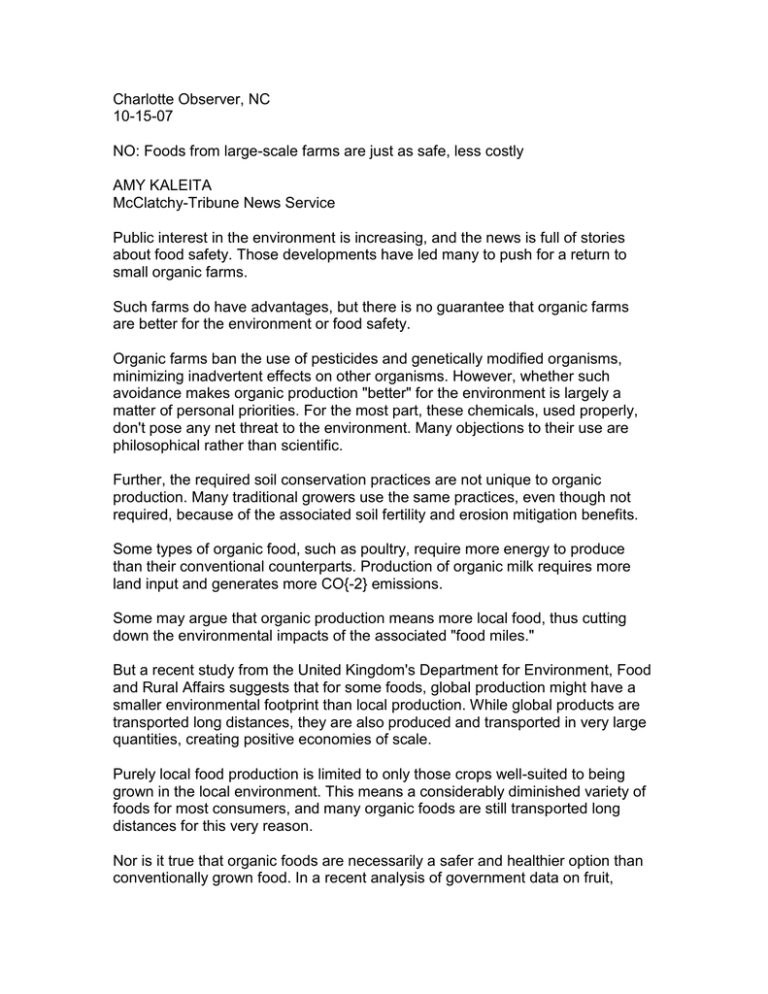
Charlotte Observer, NC
10-15-07
NO: Foods from large-scale farms are just as safe, less costly
AMY KALEITA
McClatchy-Tribune News Service
Public interest in the environment is increasing, and the news is full of stories
about food safety. Those developments have led many to push for a return to
small organic farms.
Such farms do have advantages, but there is no guarantee that organic farms
are better for the environment or food safety.
Organic farms ban the use of pesticides and genetically modified organisms,
minimizing inadvertent effects on other organisms. However, whether such
avoidance makes organic production "better" for the environment is largely a
matter of personal priorities. For the most part, these chemicals, used properly,
don't pose any net threat to the environment. Many objections to their use are
philosophical rather than scientific.
Further, the required soil conservation practices are not unique to organic
production. Many traditional growers use the same practices, even though not
required, because of the associated soil fertility and erosion mitigation benefits.
Some types of organic food, such as poultry, require more energy to produce
than their conventional counterparts. Production of organic milk requires more
land input and generates more CO{-2} emissions.
Some may argue that organic production means more local food, thus cutting
down the environmental impacts of the associated "food miles."
But a recent study from the United Kingdom's Department for Environment, Food
and Rural Affairs suggests that for some foods, global production might have a
smaller environmental footprint than local production. While global products are
transported long distances, they are also produced and transported in very large
quantities, creating positive economies of scale.
Purely local food production is limited to only those crops well-suited to being
grown in the local environment. This means a considerably diminished variety of
foods for most consumers, and many organic foods are still transported long
distances for this very reason.
Nor is it true that organic foods are necessarily a safer and healthier option than
conventionally grown food. In a recent analysis of government data on fruit,
vegetables and meats, Consumer Reports found that foods such as asparagus
and bananas, even when treated with pesticides, do not tend to contain
detectable levels of pesticides anyway. While the concept of any pesticides in or
on our food sounds scary, the majority of conventional foods have no detectable
pesticide residues.
There is the possibility of disease outbreaks from any food; the spinach
responsible for last year's E. coli outbreak was grown on a small organic farm.
A comprehensive 2002 review of scientific research found that with the possible
exception of nitrate content, there is no strong evidence that organic and
conventional foods differ in concentrations of various nutrients.
We should continue to investigate sustainable farming practices. But the public
should understand that conversion to small organic farms will not necessarily
have notable environmental and food-safety benefits.
Amy Kaleita is an assistant professor of agricultural engineering at Iowa
State University and a senior fellow in environmental studies with the
Pacific Research Institute www.pacificresearch.org
